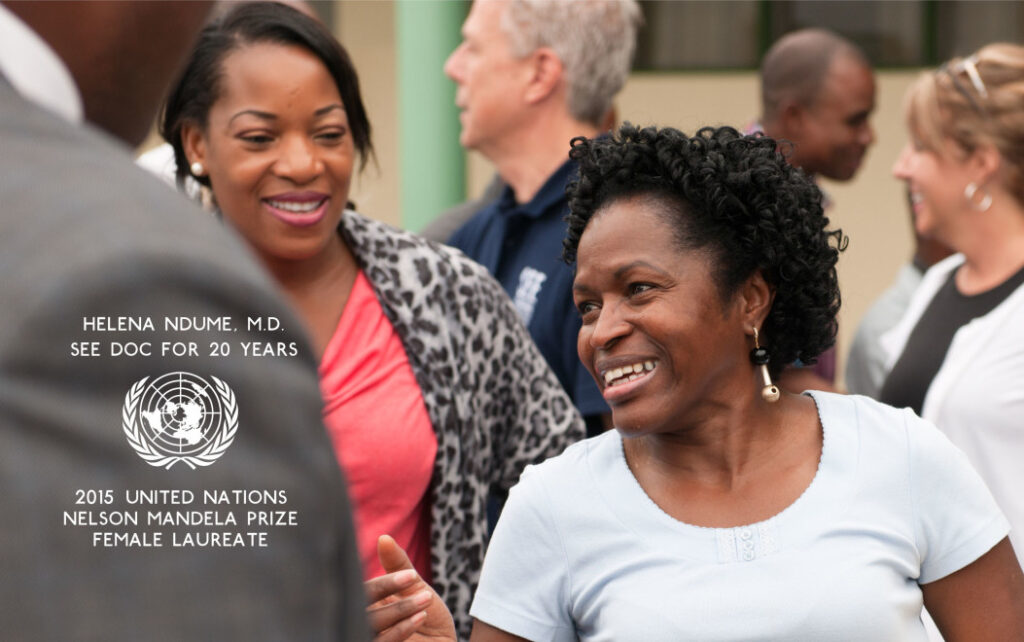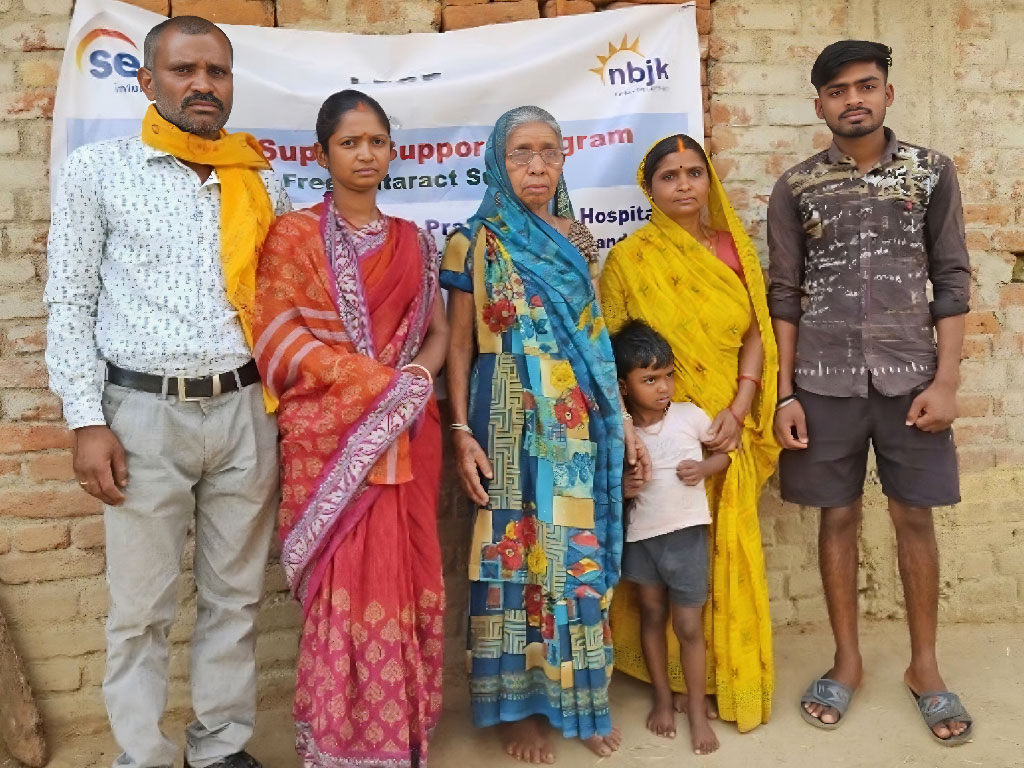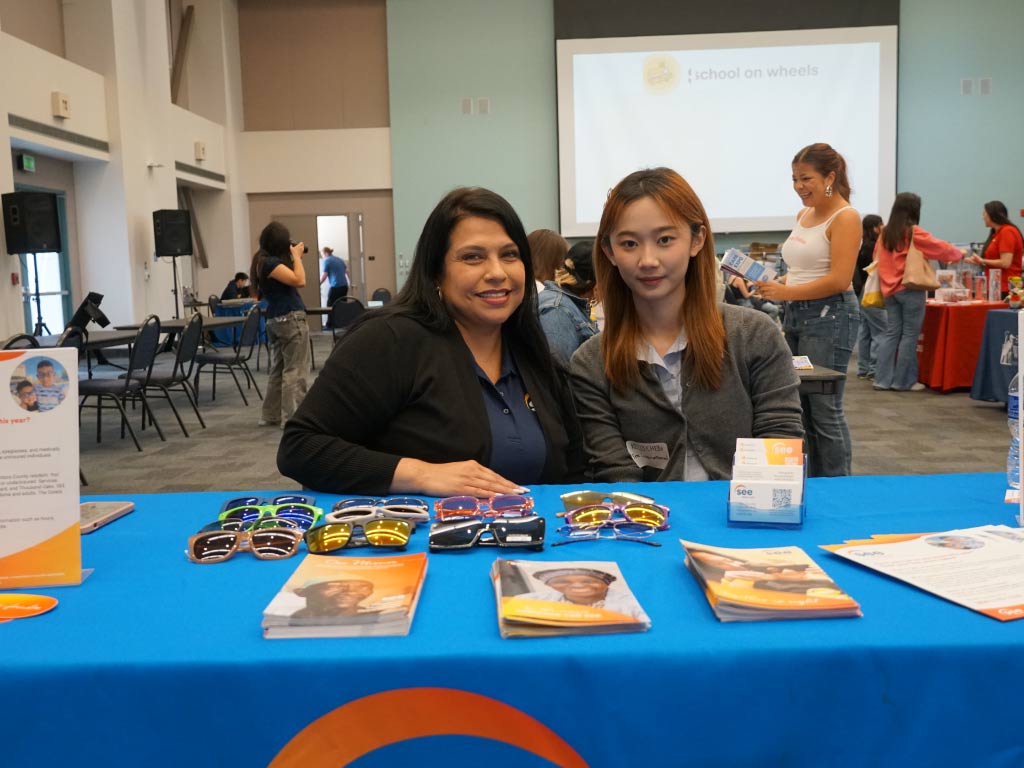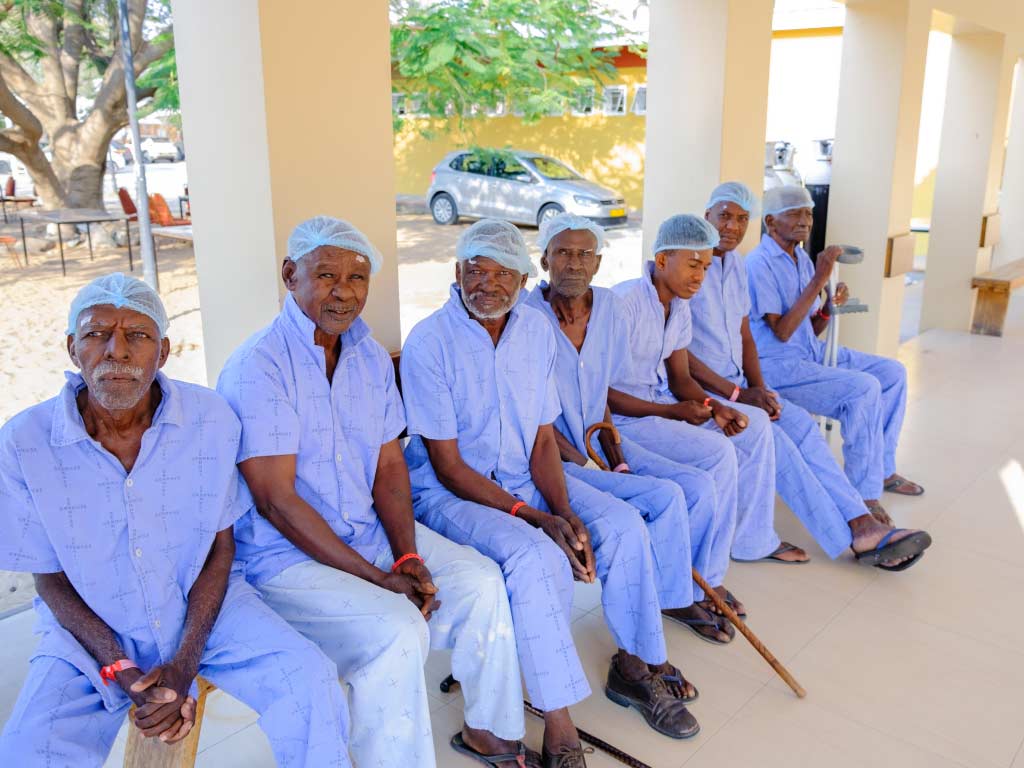On July 24, 2015, SEE volunteer Dr. Helena Ndume of Namibia became the winner of the first-ever United Nations Nelson Rolihlahla Mandela Prize for her sight-restoring work and dedication to humanity.
Dr. Ndume’s Speech Upon Accepting the United Nations Nelson Rolihlahla Mandela Award
I would like to thank you from the bottom of my heart for the honor of being selected to be the first female recipient of the prestigious United Nations Nelson Roulihlahla Mandela award. My deepest appreciation goes to SEE International for nominating me and I shall forever remain grateful for the recognition that I have received. Allow me to state categorically that although this is a personal award, it is and will always remain as a result of dedicated teamwork, involving hardworking Namibian and international health professionals.
Growing up in my home town of Tsumeb in northern Namibia I could not have possibly imagined to one day be standing before the World Body receiving an award, let alone to be privileged to receive it in the company Mr. George Sampiao who has provided exceptional leadership to his nation and changed lives for the better. It is an honor Sir!
I was born during my country’s illegal occupation by apartheid South Africa. I was 15 years old, when, like thousands of other young Namibians, I fled the country to escape the violence, imprisonment, the inferior Bantu education and torture. We fled into Angola where we were met by combatants of the South West Africa People’s Organisation (SWAPO) and safely escorted to Zambia. In Zambia we were settled in SWAPO Health and Education Centres and continued with our education anew!
I was amongst the first bunch of youngsters to be send to The Gambia were I finished my secondary school. Since “home” was SWAPO camps in Angola and Zambia I went back to Angola and was assigned to work as an administrator to the SWAPO Secretary of Transport, while waiting to be send to a university.
My first choice (dream) was to become a fashion designer, but when I told this to Mr. Nahas Angula, at the time SWAPO Secretary for Education (who went on to become Namibia’s Prime Minister), he told me straight to my face that “independent Namibia will need medical doctors and not fashion designers”. I narrated this episode to Dr. Libertina Amadhila (then Namibia’s only female physician) who told me that she agrees with Nahas Angula and that she will not take no for an answer. She immediately recommended that I be send to the University of Leipzig to study medicine. Looking back, I am glad that I listened to their wise advice and will I remain forever grateful for their guidance. Dr. Amadhila has been my mentor and an enduring inspiration both professionally and academically.
My life wasn’t without challenges. I nearly did not finish my studies! Just got married and expecting then I was informed that my husband had died at the front line. It was devastating. But thanks to the excellent counsels from the University and the Heinke family who took me into their care, I managed to graduate. My son and I remain indebted to them.
I returned to Namibia in 1989, thanks in no small measure to the efforts of the United Nations, SWAPO of Namibia and the ANC of Nelson Roulihlahla Mandela who exerted enormous pressure on the apartheid regime in Pretoria. The name Mandela evokes special sentiments in me on a personal basis. It was on the day of his inauguration as first democratically elected President of a free South Africa that I met the man who was to become my husband, my dearest husband and mentor Solomon Guramatunhu. Thanks Solly for always being understanding and for your encouragement!
After internship I went back to Germany to specialize in ophthalmology at the Saarland University. My first participation in an eye-camp was in India, Tamil Nadu where I went for my field attachment. The expressions and the tears of joy I saw from the patients after an operation then, and what I continue to experience today is priceless! It fuels and recharges me to continue diligently serving not only the Namibian people but humanity! The last eye operations I carried out was in the Democratic Republic of Congo and I am proud that like many others it was a huge success.
In Namibia, the first eye-camp I was part of was at Rundu Hospital on the banks of the Kavango River on the Namibian – Angolan borders. We screened 500 patients and booked 200 to be operated. Come time for operation only 82 patients turned up. Why? Because blindness was taken as a normal aging process and they were scared of the operation! Seriously, to many in rural Namibia eye operations were unheard of. However, the success of the operations spread by the word of mouth of the first patients that stoked the flame, which has made the Program such a success today.
What is humbling and rewarding is what the patients tells us what they are looking forward to, now that they can see again, for example:
“I will be able to see my baby for the first time delivered six months ago”
“Now I will be able to work in the field and toil for myself”
“I will be able to see my grandchildren for the first time”
“No one will be able to cheat me out of my pension money anymore”
Blindness is closely linked with extreme poverty. When a father or mother goes blind he or she may no longer be able to work and provide for the family. When a child goes blind, he or she may no longer be able to go to school and receive education. When a grandparent goes blind he or she may need constant care from the young family members. In our developing world being able to see can often make a difference between surviving and starving. I am indeed fortunate to be able to contribute in a small way in making people’s lives a little better. Avoidable blindness is a tragic epidemic with far greater repercussions than many realize.
Did you know for example that one million people go blind each year? Or that every minute a child somewhere in the world loses his or her sight? Or that literally hundreds of billions of dollars are lost due to blindness?
According to the World Health Organization, up to 80% of all cases of blindness could be easily prevented or treated, if the individuals only had access to vision care. I therefore take this opportunity to thank all the men and women who are at the front line in the fight against preventable blindness. Non-profit Organizations like SEE International continue to spearhead eye campaigns in terms of organizing the medical expeditions and provides the supplies so that volunteer doctors, like myself, continue our mission of ending preventable blindness worldwide, more so in the developing world where it is prevalent.
For all these reasons, I would like to encourage the Member States of the UN to recommit themselves to the admirable goal of eliminating preventable blindness by the year 2020.
Finally Mr. President, I humbly receive this prestigious award on behalf of the Namibian blindness prevention team, on behalf of the past and present leadership of the Namibian Nation, that of the Ministry of Health and Social Services and that of the Namibian people. This can never be a Helena Ndume award!
I thank you!






